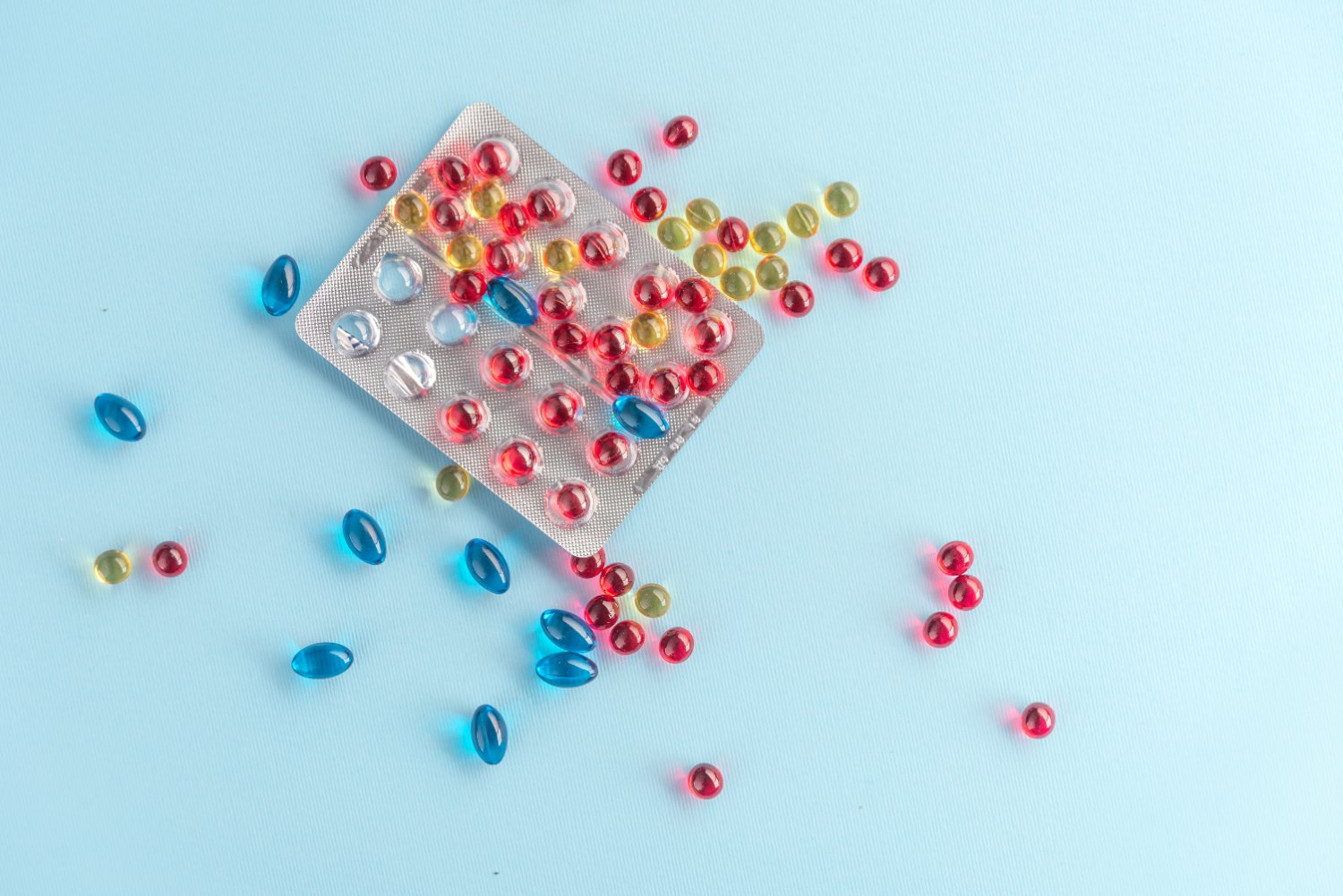
Muscular pain, also known as myalgia, is a common condition that affects people of all ages. It can range from mild discomfort to severe pain that significantly limits daily activities. Muscular pain can be caused by a variety of factors, including overuse, injury, or underlying health conditions. Whether it is acute or chronic, muscular pain can be debilitating and distressing, often requiring careful management and attention to prevent further complications.
This article provides a comprehensive overview of muscular pain, including its causes, symptoms, treatments, and prevention strategies.

What is Muscular Pain?
Muscular pain refers to discomfort or pain that originates in the muscles of the body. It can affect any muscle in the body and may be localized to one area or spread across multiple muscles. Muscular pain can range from mild aches and stiffness to sharp, debilitating pain, and it may be temporary or chronic.
Muscular pain can arise from several different causes, and understanding the underlying factors contributing to the pain is essential for appropriate treatment and management.
Types of Muscular Pain
Muscular pain can be categorized based on its duration and cause. Some of the most common types of muscular pain include:
- Acute Muscular Pain: This type of pain is short-term and is often caused by sudden injury, strain, or overuse of the muscles. Acute pain typically occurs following physical activity or trauma and can last for a few hours to several days.
- Chronic Muscular Pain: Chronic muscular pain persists for weeks, months, or even longer. It may be caused by ongoing medical conditions such as fibromyalgia, myofascial pain syndrome, or autoimmune diseases. Chronic pain is often more complex and may require long-term management strategies.
- Delayed Onset Muscle Soreness (DOMS): DOMS occurs after unaccustomed physical activity or exercise, particularly when the body is exposed to movements or exercises that the muscles are not used to. It typically peaks 24 to 48 hours after exercise and is characterized by muscle stiffness, soreness, and weakness.
- Muscle Cramps: Muscle cramps are sudden, involuntary contractions of one or more muscles that can cause intense pain. They often occur during exercise or at night and can be triggered by dehydration, overexertion, or electrolyte imbalances.
- Muscle Strains: A muscle strain occurs when muscle fibers are stretched beyond their limits, resulting in damage to the muscle. Strains can vary in severity, from mild overstretching to complete tearing of the muscle fibers. This type of pain is often accompanied by swelling, bruising, and limited movement.
- Myofascial Pain: Myofascial pain is caused by trigger points in the muscles, which are sensitive knots that form when muscle fibers become tight or contracted. These trigger points can cause localized pain and can radiate to other areas, resulting in discomfort in multiple regions of the body.
- Referred Pain: Referred pain occurs when pain is felt in one part of the body, but the cause of the pain originates in another area. For example, a problem in the neck or back can cause pain to be felt in the shoulders or arms.
Causes of Muscular Pain
There are many possible causes of muscular pain, ranging from temporary discomfort due to overuse to more serious underlying conditions. Some of the most common causes of muscular pain include:
- Overuse or Strain: Repeated physical activity or excessive use of a muscle can lead to strain, resulting in pain and stiffness. This is often seen in athletes or individuals who engage in intense or repetitive movements. Overuse can cause tiny tears in the muscle fibers, leading to inflammation and soreness.
- Trauma or Injury: Physical trauma or injury, such as a fall, car accident, or direct blow to a muscle, can result in muscle pain. A muscle may become bruised, torn, or inflamed as a result of the injury, leading to pain and reduced function.
- Poor Posture or Body Mechanics: Prolonged poor posture or improper body mechanics during daily activities (such as sitting for long periods, lifting heavy objects incorrectly, or sleeping in an awkward position) can strain muscles, leading to discomfort and pain.
- Muscle Imbalances: Muscular imbalances occur when one muscle is stronger or more dominant than its opposing muscle, leading to uneven stress on the muscles and joints. These imbalances can result in muscle pain and contribute to the development of chronic pain conditions.
- Dehydration and Electrolyte Imbalances: Dehydration, as well as imbalances in electrolytes like potassium, calcium, and magnesium, can lead to muscle cramps and spasms. When the body lacks the necessary fluids and nutrients, muscles can contract involuntarily, causing intense pain.
- Fibromyalgia: Fibromyalgia is a chronic pain condition characterized by widespread muscle pain, fatigue, and tenderness. It is believed to be related to an abnormal response to pain signals in the brain and nervous system. People with fibromyalgia often experience muscle pain in multiple areas of the body, along with other symptoms such as sleep disturbances and cognitive difficulties.
- Myofascial Pain Syndrome: This condition is characterized by the development of trigger points in the muscles, which can cause localized and referred pain. It may be associated with muscle injury, stress, or poor posture.
- Infections: Certain infections, such as the flu or other viral or bacterial illnesses, can lead to generalized muscle pain. In some cases, infections like Lyme disease can cause muscle and joint pain that may persist if left untreated.
- Autoimmune Diseases: Conditions such as lupus, rheumatoid arthritis, and polymyositis involve the immune system attacking the body’s tissues, including muscles, leading to inflammation and pain.
- Medications and Drugs: Some medications, particularly statins (used to lower cholesterol), can cause muscle pain or weakness as a side effect. Drug-induced muscle pain may be temporary or long-lasting, depending on the medication involved.
- Aging: As people age, muscles naturally lose mass and strength, making them more susceptible to injury and strain. Age-related changes in muscle tissue can contribute to chronic muscular pain and discomfort.
Symptoms of Muscular Pain
The symptoms of muscular pain can vary depending on the cause and severity of the condition. Common symptoms include:
- Pain: The pain associated with muscular discomfort can range from mild aches to sharp, stabbing sensations. The pain may be localized to a specific muscle or area, or it may be more diffuse and affect multiple muscles.
- Stiffness: Stiffness in the muscles is often a sign of inflammation or overuse. The affected muscles may feel tight, and it may be difficult to move them freely.
- Swelling or Bruising: In cases of muscle injury or strain, the affected muscle may become swollen, bruised, or tender to the touch.
- Muscle Weakness: Muscular pain can sometimes be accompanied by weakness, where the affected muscles are unable to perform normal movements or bear weight. This is especially common in cases of muscle strains or chronic pain conditions like fibromyalgia.
- Cramping: Muscle cramps, which are sudden and painful contractions of the muscle, can occur during physical activity or at rest. They are often accompanied by tightness or a feeling of stiffness in the affected area.
- Reduced Range of Motion: The pain and stiffness associated with muscular injuries or conditions can limit the range of motion in the affected muscle, making it difficult to perform everyday tasks.
Treatments for Muscular Pain
The treatment of muscular pain depends on the underlying cause, severity, and duration of the pain. Some common treatments for muscular pain include:
- Rest and Ice: For acute injuries or strains, rest is essential to allow the muscle to heal. Ice therapy can also help reduce inflammation and pain in the affected muscle, especially in the first 48 hours after the injury.
- Heat Therapy: After the initial inflammation has subsided, heat therapy can be used to relax the muscles, improve blood circulation, and alleviate stiffness. Heat can be applied using a heating pad, warm bath, or hot compress.
- Pain Relievers: Over-the-counter pain medications such as acetaminophen (paracetamol), ibuprofen, or naproxen can provide relief from mild to moderate muscle pain. These medications can reduce inflammation, relieve pain, and improve mobility.
- Stretching and Exercise: Gentle stretching exercises can help relieve muscle tension, improve flexibility, and prevent further injury. Physical therapy may also be recommended for muscle imbalances, chronic pain conditions, or post-injury rehabilitation.
- Massage Therapy: Therapeutic massage can help release tight muscles, improve blood flow, and alleviate muscle pain. Massage is particularly beneficial for conditions such as myofascial pain syndrome or muscle knots.
- Topical Analgesics: Topical creams, gels, or patches containing ingredients like menthol, capsaicin, or lidocaine can provide localized pain relief for muscular discomfort. These products can be applied directly to the affected area.
- Anti-inflammatory Drugs: Nonsteroidal anti-inflammatory drugs (NSAIDs) such as ibuprofen or aspirin can help reduce inflammation and provide more significant pain relief for conditions involving swelling or injury.
- Injections: For chronic muscular pain, especially in cases of myofascial pain syndrome or fibromyalgia, a doctor may recommend corticosteroid injections or trigger point injections to reduce inflammation and relieve pain.
- Acupuncture: Acupuncture involves the insertion of fine needles into specific points on the body to stimulate healing and reduce pain. It has been used as a complementary therapy for managing muscle pain and stiffness.
Prevention of Muscular Pain
Preventing muscular pain involves a combination of good habits, proper posture, and self-care practices. Some strategies to prevent muscular pain include:
- Warm-Up and Cool-Down: Always warm up before physical activity and cool down afterward. Stretching and gentle exercises can prepare muscles for exertion and help prevent injury.
- Strengthening Exercises: Strengthening the muscles through regular exercise can help prevent strains, improve muscle endurance, and reduce the risk of injury.
- Proper Technique: Using proper body mechanics when lifting, sitting, or performing physical activities can help reduce strain on the muscles and prevent overuse injuries.
- Stay Hydrated: Drinking plenty of water before, during, and after physical activity can help prevent dehydration and reduce the risk of muscle cramps.
- Ergonomics: Pay attention to ergonomics when sitting, standing, or working. Maintaining good posture and using supportive furniture can help prevent muscle strain and discomfort.
- Manage Stress: Stress can lead to muscle tension and pain, particularly in the neck, shoulders, and back. Practicing relaxation techniques such as deep breathing, meditation, or yoga can help reduce stress and alleviate muscle tension.
Conclusion
Muscular pain is a common condition that can be caused by a variety of factors, including injury, overuse, poor posture, and underlying medical conditions. Whether acute or chronic, muscular pain can significantly impact daily life and require effective treatment to alleviate discomfort and promote healing. Understanding the causes and types of muscular pain, along with proper management techniques and preventive measures, can help individuals reduce the risk of injury and maintain better muscle health. If muscular pain persists or becomes severe, seeking professional medical advice is essential to determine the appropriate treatment and prevent long-term complications.
RELATED POSTS
View all


